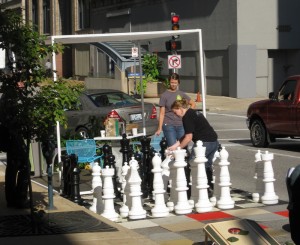A former Christian describes his former Christianity
Mike Baker submitted a few comments to DI over the past few months. Then, after I published yet another installment of my favorite quotes (read: I took a night off from actually writing), Mike offered me his substantial collection of provocative quotes (we’ve published them here and here, and there’s more to come). We started an email correspondence a few weeks ago. When Mike told me that he was formerly a Christian, but no longer, I asked him a few follow-up questions. It turns out that there is an unexpected twist to Mike’s story. He is no longer a Christian, but he believes in God. Yet he believes that organized religions are generally harmful to society. Yet he also admits that good things are sometimes accomplished by religious organizations. After a few rounds of back and forth, I asked Mike whether he would be willing to allow me to share his thoughts with the DI community, and he agreed. I think that you’ll enjoy reading Mike’s genuine thoughts and his engaging writing style. Without further adieu, here is that email conversation: Mike: Thanks for sharing your thoughts on religion in that five-part essay you wrote. As a person who has always called himself a Christian (albeit a loosely wrapped one), I've recently walked away from my "faith". In large part by the inactions and apparent acquiescence of "Christians" to G.W. Bush's invasion of Iraq. Feeling somewhat "lost", I began reading Bertrand Russell, Sam Harris and C. Hitchens just to name a few. I was totally engrossed and amazed too at what is not discussed in church. I now see religion (almost all of the brands) as a brake on human advancement at best and quite possibly the catalyst for civilizations’ destruction at worst. I guess you could say I am in the Sam Harris camp there. I do agree, however, with your summation that bridges need to be built. Here's a little on me. My mother grew up in Nazi Germany and brought me up to fully appreciate the meaning of our Constitution and what true freedom and democratic principles represent. Much to my mothers chagrin (something I didn't fully understand at the time) I joined the Marine Corps after high school and served for eight yrs. Believing that we were the "good guys", bringing peace and freedom where ever we went I served proudly. Time and a better understanding of history have taught me that that is not always the case. [More . . . ]




